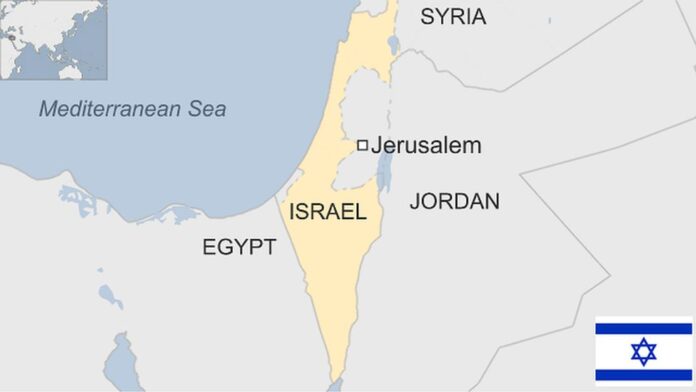Israel: A Vibrant Tapestry of Culture and Contrasts
Introduction to Israel
Geography and Location
Israel, nestled in the Middle East, is a land of contrasts, boasting diverse landscapes ranging from deserts to lush greenery. Situated on the southeastern shore of the Mediterranean Sea, it shares borders with Lebanon to the north, Syria to the northeast, Jordan to the east, and Egypt to the southwest.
Historical Background
With a rich tapestry of history dating back millennia, Israel holds significant importance for multiple religions, including Judaism, Christianity, and Islam. Its historical significance is profound, with sites like Jerusalem and Bethlehem holding immense religious and cultural value.
Cultural Diversity in Israel
Ethnic and Religious Diversity
Israel is a melting pot of ethnicities and religions, with Jewish, Arab, Druze, and Bedouin communities coexisting alongside each other. This diversity enriches the cultural fabric of the nation, contributing to a vibrant and dynamic society.
Impact on Society
The fusion of different cultures and traditions has led to a unique social landscape characterized by tolerance, resilience, and a sense of unity amidst diversity. Despite occasional tensions, the people of Israel embrace their differences and celebrate their shared heritage.
Israeli Cuisine and Food Culture
Influences and Ingredients
Israeli cuisine reflects the country’s diverse cultural influences, incorporating elements from Jewish, Arab, Mediterranean, and European traditions. Fresh vegetables, olive oil, herbs, and spices form the cornerstone of Israeli cooking, resulting in flavorful and wholesome dishes.
Popular Dishes
From falafel and hummus to shakshuka and sabich, Israeli cuisine offers a delectable array of flavors and textures. Street food stalls, bustling markets, and upscale restaurants cater to a diverse palate, satisfying both locals and tourists alike.
Economic Landscape of Israel
Innovation and Technology Sector
Israel has emerged as a global hub for innovation and technology, earning the nickname “Startup Nation.” With a thriving ecosystem of tech startups, research institutions, and venture capital firms, it leads the way in fields such as cybersecurity, biotechnology, and renewable energy.
Agriculture and Tourism
Despite its arid climate, Israel has made remarkable strides in agricultural innovation, employing advanced techniques like drip irrigation and hydroponics to maximize crop yields. Additionally, the country’s rich historical and natural heritage attracts millions of tourists each year, contributing significantly to its economy.
Political Situation
Conflict with Palestine
The Israeli-Palestinian conflict remains a deeply entrenched issue, marked by territorial disputes, security concerns, and competing nationalist aspirations. Efforts to achieve a lasting peace agreement have been elusive, with sporadic outbreaks of violence exacerbating tensions on both sides.
Diplomatic Relations
Israel’s geopolitical position in the Middle East has shaped its diplomatic relations with neighboring countries and global powers. While it has forged alliances with nations like the United States, Egypt, and Jordan, it also faces diplomatic challenges due to its policies towards the Palestinian territories.
Education and Healthcare
Education System
Israel places a strong emphasis on education, with a well-developed system that promotes academic excellence and innovation. From primary schools to prestigious universities, it offers a range of educational opportunities catering to diverse interests and abilities.
Healthcare Infrastructure
The healthcare system in Israel is renowned for its high quality and accessibility, providing comprehensive medical services to its citizens. With state-of-the-art hospitals, skilled healthcare professionals, and robust public health initiatives, Israel prioritizes the well-being of its population.
Israeli Arts and Literature
Influence of Jewish Heritage
Jewish culture has had a profound impact on the arts and literature of Israel, inspiring creativity and expression across various mediums. From literature and music to visual arts and theater, Israeli artists draw inspiration from their rich heritage to create meaningful and thought-provoking works.
Contemporary Trends
In addition to traditional forms of artistic expression, Israel’s cultural scene is vibrant and dynamic, with contemporary artists pushing boundaries and challenging conventions. From experimental theater to avant-garde galleries, Israeli art reflects the country’s eclectic and ever-evolving identity.
Tourist Attractions
Historical Sites
Israel is home to a wealth of historical sites dating back thousands of years, including ancient ruins, archaeological wonders, and sacred landmarks. Visitors can explore iconic sites such as the Western Wall, Masada, and the Old City of Jerusalem, each offering a glimpse into the country’s storied past.
Natural Wonders
Beyond its historical treasures, Israel boasts breathtaking natural beauty, from the serene shores of the Dead Sea to the rugged terrain of the Negev Desert. Nature reserves, national parks, and scenic landscapes provide ample opportunities for outdoor adventures and eco-tourism.
Environmental Challenges
Water Scarcity Issues
Israel faces significant environmental challenges, chief among them being water scarcity due to its arid climate and growing population. Innovative water management strategies, including desalination plants and wastewater recycling, are essential for ensuring sustainable access to water resources.
Conservation Efforts
Despite its environmental challenges, Israel is committed to conservation efforts aimed at preserving its natural habitats and biodiversity. Initiatives such as afforestation projects, wildlife conservation programs, and eco-friendly policies are crucial for safeguarding the country’s natural heritage.
Social Issues and Human Rights
Treatment of Minorities
While Israel prides itself on its diversity and inclusivity, it grapples with social issues related to the treatment of minority groups, including Arab citizens, Ethiopian Jews, and migrant workers. Addressing systemic inequalities and promoting



